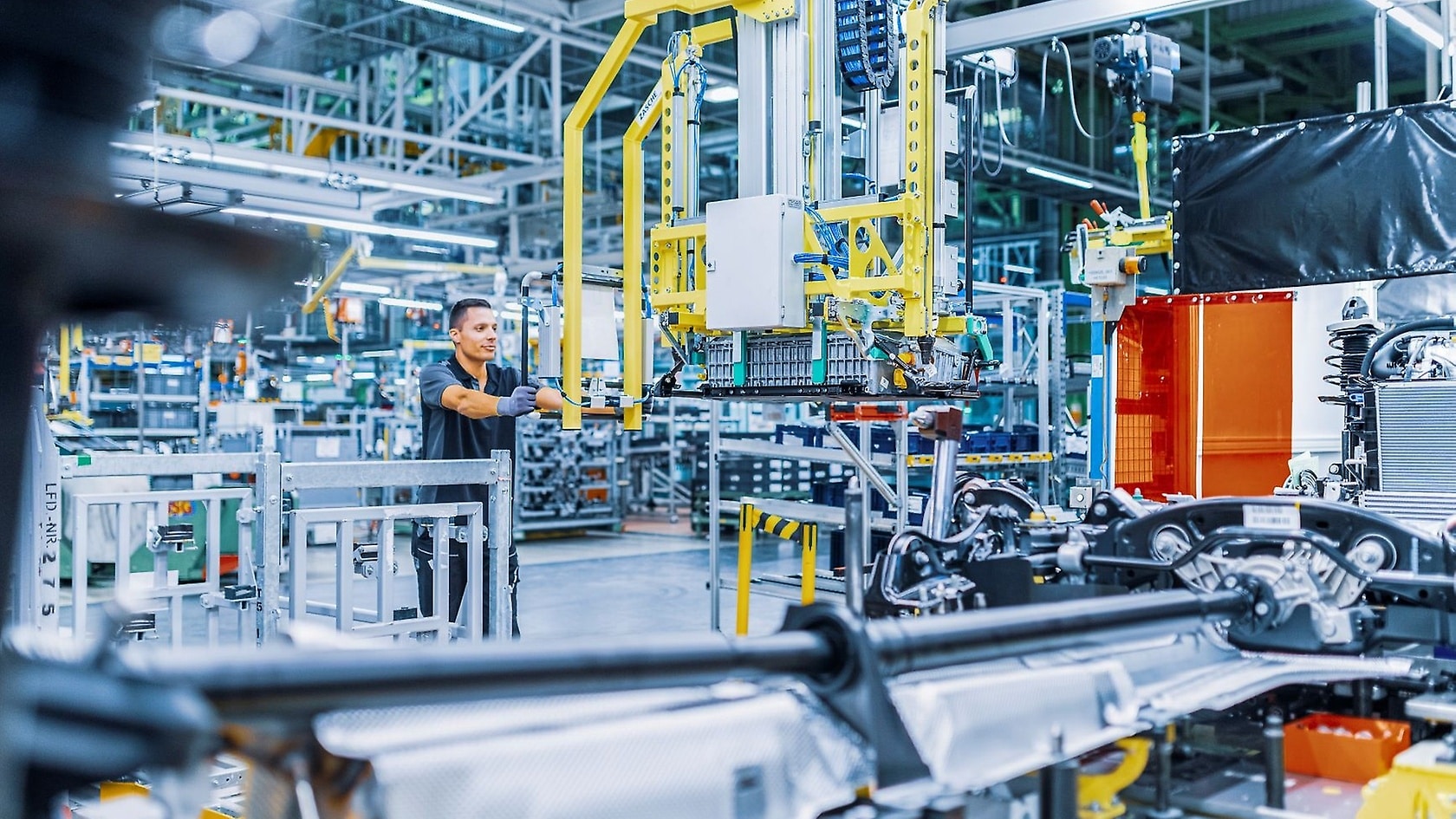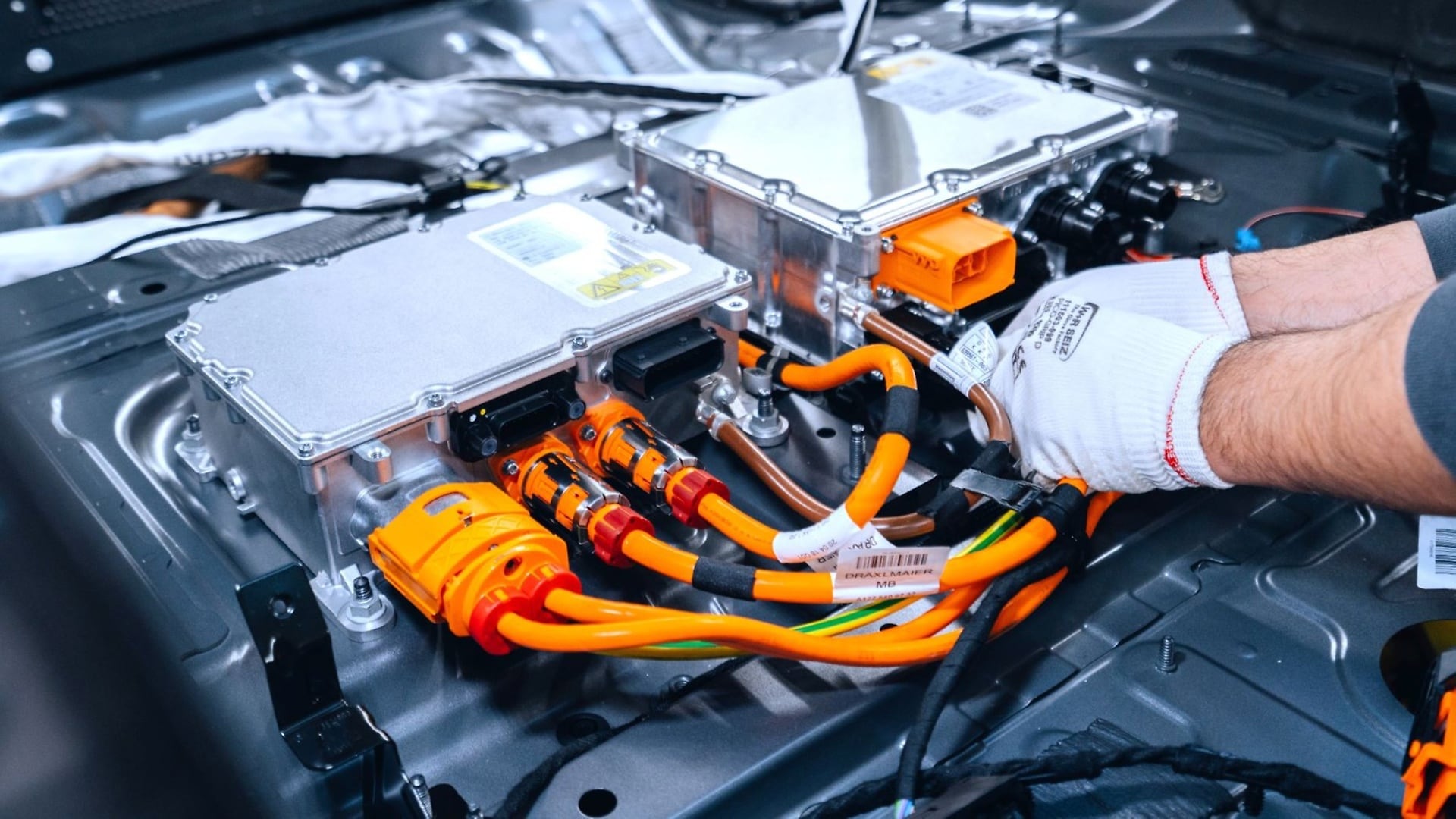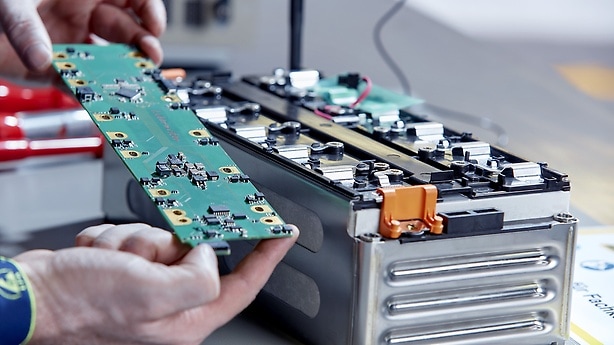February 28, 2020 – The electric initiative in the Mercedes-Benz Cars global production network has reached its next milestone: the production launch of the first Mercedes-Benz compact vehicles with plug-in hybrid drive at the Mercedes-Benz Rastatt plant in southern Germany is an important strategic step for the plant.
Supported by a systematic digitisation of production processes, Mercedes-Benz Rastatt plant and its highly skilled team have implemented the simultaneous ramp up of two body variants: the A 250 e (combined fuel consumption 1.5-1.4 l/100 km, combined power consumption 15.0-14.8 kWh/100 km, electric range 74 km, combined CO₂ emissions 34-33 g/km) plus the A 250 e Sedan (combined fuel consumption 1.4 l/100 km, combined power consumption 14.8 -14.7 kWh/100 km, electric range 75 km, combined CO₂ emissions 33-32 g/km)¹.
Electric range up to 75 km
Plug-in hybrids are an important milestone on the road to emission-free driving. The focus of the new compact vehicles with plug-in hybrid drive EQ Power is on (electric) driving pleasure and everyday usability. The electric range consists of 70 to 75 km (NEFZ). By 2039, Mercedes-Benz Cars is targeting a CO₂-neutral new car fleet, and by 2030 the company is already targeting more than 50% of passenger car sales from plug-in hybrids or full-electric vehicles. This also applies to the production process itself: since 2011 the Mercedes-Benz Rastatt plant has already implemented various measures which have nearly halved the specific CO₂ emissions per vehicle in production.
The A-Class with plug-in hybrid drive is being produced on the same line at the Mercedes-Benz Rastatt plant as models with conventional drive systems. The production of vehicles with different drive types can therefore be adapted flexibly and efficiently. The plant is thus working at optimal capacity and the Mercedes-Benz high production and quality standard are guaranteed.
Sustainable mobility throughout the entire value-added chain
With the production of hybrid vehicles and of the upcoming electric vehicles, the Mercedes-Benz Rastatt plant is making an important contribution to "Ambition2039". This is how Mercedes-Benz Cars refers to its ambitious path toward sustainable mobility and increased climate protection throughout the entire value-added chain. By 2039, the Group is aiming for a carbon neutral new passenger car fleet, and by 2030 Mercedes-Benz aims to reach more than half of the world's passenger car sales with plug-in hybrids or purely electric vehicles.
When it comes to carbon-neutral production, two levers are used: the efficient generation of energy and the reduction of energy consumption. With technologies such as co-generation of heat and electricity (CHP), heat exchanger systems or heat recovery, the Mercedes-Benz Rastatt plant has succeeded in reducing the specific CO2 emissions per vehicle in production almost by half since 2011. A further example is the new energy and environment information path at the Mercedes-Benz Rastatt plant. The next big project is already on the agenda: by 2022 the power for the Mercedes-Benz Rastatt plant, as well as in Mercedes-Benz’s other European plants, is expected to come entirely from renewable sources such as wind, solar and hydroelectric power.
Electric driving pleasure thanks to efficient high-tech components
A lithium-ion high-voltage battery, which has a total capacity of approximately 15.6 kWh, serves as an electric energy storage unit. It can be charged at an external AC or DC electric energy source. The high-voltage batteries are produced from the wholly-owned Mercedes-Benz subsidiary Accumotive. Since 2012, battery systems for electric and electrified vehicles from Mercedes-Benz and smart as well as commercial vehicles are produced in Kamenz in the east of Germany. The site in Kamenz, consisting of two battery factories, is state-of-the-art and one of the largest in the global automotive industry. In total, the battery production network of Mercedes-Benz Cars will consist of nine factories at seven locations on three continents.


